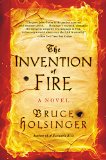Summary | Excerpt | Reviews | Beyond the Book | Readalikes | Genres & Themes | Author Bio

"WHY AM I HERE, RALPH?"
"Because you are you." Strode raised a tired smile, his face flush with the effort of our short but muddy trudge back to the hospital chapel, where he had left his horse. Over the last few months he had been walking with a bad limp, and now tended to go about the city streets mounted rather than on foot, like some grand knight. No injury that I knew of, merely the afflictions of age. I worried for him.
He adjusted the girth, tugged at the bridle. "And you know what you know, John. If you don't know it, you know how to buy it or wheedle it or connive it. Brembre is smashing body and bone at the Guildhall. I have never seen him angrier. He considers it an insult to his own person that someone should do such a thing within the walls, leave so many corpses to stew and rot."
Nicholas Brembre, grocer and tyrant, perhaps the most powerful mayor in London's history. "And namelessly so," I said.
"The misery of it." Strode wagged his head. "There must be a dozen men in this city who know the names of those poor fellows eating St. Bart's dirt right now. Yet we've heard not a whisper from around the wards and parishes in the last two days. Aldermen, beadles, constables, night walkers: everyone has been pulled in or cornered, but no one claims to have seen or heard a thing, and no men reported missing. As if London itself has gone blind and dumb."
"No witnesses, then?"
He hesitated. "Perhaps one."
I waited.
"You know our Peter Norris."
I smiled, not fondly. "I do." Norris, formerly a wealthy mercer and a beadle of Portsoken Ward, had lost his fortune after a shipwreck off Dover, and now lived as a vagrant debtor of the city, moving from barn to yard, in and out of gates and gaols. We had crossed knives any number of times, never with good results.
"He claims to know of a witness," said Strode. "Someone who beheld the dumping of the corpses at the Long Dropper. He tried to trade on it from the stocks in order to shorten his sentence, though Brembre has refused to indulge his fantasy, as he called it."
"Who is the witness?" "Norris would not say, not once he learned the mayor's mind. Per- haps you might convince him to talk. At the moment he's dangling in the pillory before Ludgate, and will be for the next few days."
"I'll speak with him tomorrow," I said.
"Very good." "And what of the crown?" I was thinking of the guns. Weapons of war, not civic policing. To my knowledge the only place in or near London that possessed such devices as culverins and cannon was the Tower itself.
Strode's brows drew down. He led his horse to the lowest stair, preparing to mount. "The sheriffs have made inquiries to the lord chancellor, though thus far his men have flicked us away, claiming lack of jurisdiction. A London privy, London dung, a London burial, a London problem. No concern of the court, they claim, and the only word I've had from that quarter is from Edmund Rune, the chancellor's counselor, who suggested we look into this as discreetly as possible— in fact it was he who suggested bringing you into the matter, John. With all the trouble the earl is facing at Parliament-time I can't think he would want another calamity to wrestle with."
Though he might prove helpful, I thought. Michael de la Pole, lord chancellor of the realm, had recently been created Earl of Suffolk, elevating him to that small circle of upper nobles around King Richard. Yet the chancellor was swimming against a strong tide of discontent from the commons, with Parliament scheduled to gather in just one week's time. De la Pole owed me a large favor, and despite his current difficulties I could not help but wonder what he might be holding on this affair. The unceasing tension between city and crown, the Guildhall and Westminster, rarely erupted into open conflict, more often simmering just beneath the urban surface, stirred by all those professional relations and bureaucratic niceties that bind London to its royal suburb up the river.
Excerpted from The Invention of Fire by Bruce Holsinger. Copyright © 2015 by Bruce Holsinger. Excerpted by permission of William Morrow. All rights reserved. No part of this excerpt may be reproduced or reprinted without permission in writing from the publisher.
Your guide toexceptional books
BookBrowse seeks out and recommends the best in contemporary fiction and nonfiction—books that not only engage and entertain but also deepen our understanding of ourselves and the world around us.